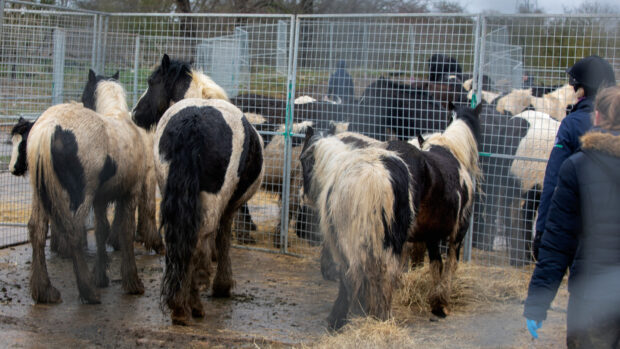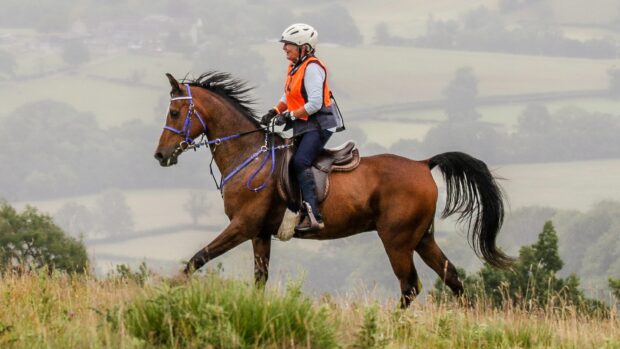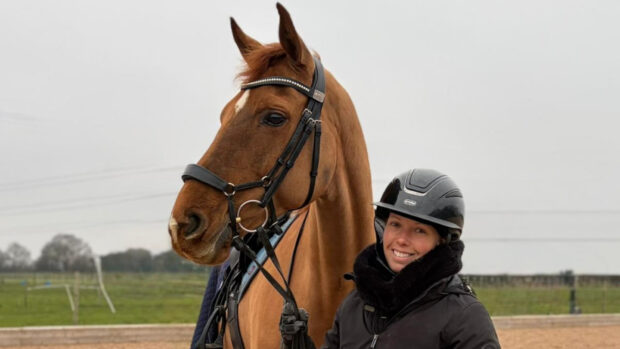H&H reported this morning on what had been described as a “wake-up call” to everyone — every single person — involved in equestrian sport. But the message doesn’t seem to be getting heard.
World Horse Welfare commissioned an independent survey on the general public’s perceptions of horse sport, and its findings should be hugely concerning to all of us who work with, ride, own, train, compete and love horses.
In our report, the headline was that 20% of people do not support the continued involvement of horses in sport. Under any circumstances. Contrary to what many of those commenting on our Facebook page believed, this does not mean that 80% were quite happy. And 40% only support horse sport if welfare is improved, for example, which makes a lot of people who don’t support the industry as it is now. These are very worrying figures.
World Horse Welfare has, as reported by H&H throughout, long been trying to alert the industry, both domestically and internationally, to the vital importance of social licence, and what happens if we lose it.
Having a social licence to operate means, essentially, that there is public support for a practice. If the public in general does not support the involvement of horses in sport, there could well come a day when we can no longer ride.
One of the biggest challenges to maintaining our social licence would seem to be convincing many of those involved with horses that this is a genuine threat, as demonstrated by many of the comments on Facebook.
H&H was accused of publishing “clickbait” and spreading “media negativity”.
“Horse and Hound you are part of the equestrian media and therefore part of the general media in the UK,” said one. “Where did you all learn the power of destruction through writing negative articles?”
Another commenter said we were “irresponsible” for publishing such articles as the stats had “no value or accuracy”.
But as a few commenters pointed out, the irresponsible thing to do would be to ignore such statistics, and not write pieces such as this.
This survey had responses from 2,057 adults. The figures have been weighted and are representative of all UK adults. These stats were analysed by people who know what they’re talking about when it comes to surveys and statistics, and what they mean from a wider perspective. We should be concerned about this.
Other Facebook commenters were dismissing those who are against horse sport as “snowflakes”, vegans or “PETA w***ers”; there were people saying we should kick on and ignore these people, or ‘tell them to F off and play with their iPads”. That dismissive attitude is not going to help.
Others criticised the fact that almost all those surveyed had little or no recent contact with horses, saying their opinions don’t matter. But they do. It is what the general public thinks that determines whether or not practices continue.
It may well be, as World Horse Welfare CEO Roly Owers said in today’s panel discussion of the report, that we will never change the minds of those 20% who think all riding of horses is abuse and should stop. But we do have an opportunity to convince the others, like the 40% who would support horse sport if horse welfare was improved.
In 2019, protestors claiming horses were being exploited ran into the ring at the European Showjumping Championships. In Australia, jump racing is banned in many states, as is greyhound racing. In my youth, there were animals performing in circuses, which would be almost unthinkable now.
Awareness of animal welfare is changing and increasing all the time, as is global availability of coverage of horse sports, and with social media, a bad image can spread round the world before you can blink. As an example, last summer’s distressing scenes in the Tokyo modern pentathlon made headline news across the world. There were petitions and letters to the International Olympic Committee calling for horse sport to be banned from the Games on welfare grounds. Many of the public cannot determine between pentathlon, polo, racing, eventing or any other discipline. It’s all horses being ridden for sport, and if one sport goes, we all do.
It doesn’t help, as some have commented to say “Stop moaning about racing, you should see what’s going on in showing/dressage/whatever”. We have to work together. Lose one sport and we could lose them all.
We have to celebrate how amazing our sport is, how much we love our horses, how much they, as well as we, benefit from the horse-human partnership. We have to not only at all times make our horses’ welfare our absolute priority, and continuously challenge ourselves and question whether we are doing what’s right for them, we have to make it clear that’s what we’re doing.
This is not, as Mr Owers said, pandering to anyone, it’s being proactive.
“The tide is turning and we can hide, or do something about it,” he said today, adding that the options are to act, or be dictated to in future. “We might not change the views of those 20% but we can influence the other 80%, whether they understand horses or not, and we need to, because their opinion, on whether we take care of our horses or not, will partly determine whether horse sport has a future. We’re not creating a problem; concerns are growing and will only grow further if we don’t address them.
“We need to take control of our sport; doing the right things for the right reasons, leading on welfare rather than reacting. We need to focus on the horse-human partnership and do everything to demonstrate to the world that we can be trusted to take care of our horses.
“My entreaty to you today is: do more, faster, and work with others to get it right.”
Other governing bodies are sitting up and taking notice; ethics and social licence are now on many agendas, which is all to the good. It’s not scaremongering, it’s not clickbait. It’s a very real threat to our future and we all need to sit up and take notice, or face the consequences.
You might also be interested in:

‘A wake-up call’: 20% of public do not support horses in sport, survey finds

‘Will we be riding in 20 years’ time?’ Horse world must ‘walk the talk’ for sport to survive

Subscribe to Horse & Hound magazine today – and enjoy unlimited website access all year round
Horse & Hound magazine, out every Thursday, is packed with all the latest news and reports, as well as interviews, specials, nostalgia, vet and training advice. Find how you can enjoy the magazine delivered to your door every week, plus options to upgrade your subscription to access our online service that brings you breaking news and reports as well as other benefits.




